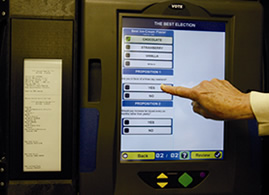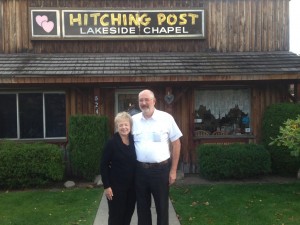Poll Shows Support for Same-Sex Marriage Dropping in Arkansas?
The 2014 Arkansas Poll was released yesterday with some interesting statistics. While many are focusing on the poll’s findings concerning candidates and political leaders, the poll’s survey questions regarding same-sex marriage are striking.
Comparing this year’s Arkansas Poll with last year’s, support for same-sex marriage in Arkansas appears to have dropped by 2%.
In 2013:
- 23% of respondents said same-sex marriage ought to be legal.
- 21% said gay couples should be able to form civil unions, but not marry.
- 46% said there should be no legal recognition of a gay couple’s relationship.
- 9% said they do not know or otherwise refused to answer the question.
This year:
- 21% of respondents said same-sex marriage ought to be legal (a 2% decrease over 2013).
- 21% said gay couples should be able to form civil unions, but not marry (no change over 2013).
- 48% said there should be no legal recognition of a gay couple’s relationship (a 2% increase over 2013).
- 10% said they do not know or otherwise refused to answer the question(a 1% increase over 2013).
Now, before we say public opinion clearly is shifting against same-sex marriage in Arkansas, it’s important to note that the change is within the poll’s margin of error (3.6%). Statistically speaking, this demonstrates that attitudes on marriage in Arkansas remain where they were a year ago: The vast majority of Arkansans still oppose same-sex marriage. Nevertheless, it’s worth pointing out this is the first time the Arkansas Poll has recorded a decrease in support for same-sex marriage since 2005.
What is also interesting to note is how support for same-sex civil unions in Arkansas has dropped over the years. In 2007, 27% of Arkansans favored civil unions. Today only about 21% support them.
It’s also worth pointing out the Human Rights Campaign is spending, on average, about $1 million annually in Arkansas this year and over the next 2-3 years in an effort to change Arkansans’ opinions on homosexuality and same-sex marriage. So far, however, opinions appear unmoved–if not sliding in favor of traditional marriage.

 A few of you may have seen stories circulating late last week and this week about problems with electronic voting machines in Arkansas.
A few of you may have seen stories circulating late last week and this week about problems with electronic voting machines in Arkansas. We have written recently about two ministers (Mr. and Mrs. Knapp) in Coeur d’Alene, Idaho, who face the prospect of fines and jail time for failing to permit a same-sex wedding at their wedding chapel.
We have written recently about two ministers (Mr. and Mrs. Knapp) in Coeur d’Alene, Idaho, who face the prospect of fines and jail time for failing to permit a same-sex wedding at their wedding chapel.